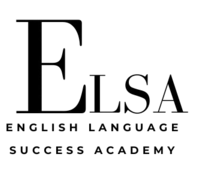Welcome to the Business English Vocabulary Quiz! This quiz consists of 10 multiple-choice questions designed to help you improve your understanding of key business terms. After answering all the questions, you’ll receive a breakdown of the correct answers and explanations.
Question 1:
Which term refers to the ability of a company to pay its short-term debts?
- A) Solvency
- B) Liquidity
- C) Profitability
Question 2:
What does “synergy” mean in a business context?
- A) The cost-saving advantages of a large-scale production
- B) The collaboration between two or more entities to achieve a greater result
- C) A significant financial loss due to poor management
Question 3:
What is meant by “market penetration”?
- A) The ability to sell existing products to a new market
- B) A strategy to increase sales of current products in an existing market
- C) A method to introduce a completely new product
Question 4:
What is a “benchmark” in business?
- A) A specific standard or reference point used for comparison
- B) A temporary pause in a business operation
- C) A method for forecasting financial performance
Question 5:
What does it mean to “leverage” in a business setting?
- A) To use borrowed capital for an investment
- B) To reduce operating expenses
- C) To outsource non-essential business tasks
Question 6:
What does “scalability” refer to in business?
- A) The ability of a company to expand or contract its operations
- B) The difficulty of entering a new market
- C) The capacity to reduce fixed costs
Question 7:
What does the phrase “break-even point” refer to?
- A) The moment when total revenues equal total costs
- B) The highest point of profitability in a fiscal year
- C) The starting point of a new business venture
Question 8:
Which of the following is an example of a “merger”?
- A) Two companies combine to form a new company
- B) A company sells part of its operations to another
- C) A company enters a joint venture without changing its structure
Question 9:
What does “equity” mean in the financial sense?
- A) The total value of a company’s debt
- B) The value of shares issued by a company
- C) The revenue generated before expenses are deducted
Question 10:
What does “due diligence” mean in business transactions?
- A) The careful consideration of all risks before a business decision
- B) An urgent need to finalize a deal quickly
- C) The practice of outsourcing legal tasks to a third party
Answer Key and Explanations:
- B) Liquidity
Liquidity refers to the ability of a company to meet its short-term financial obligations. Solvency refers to a company’s ability to meet long-term debts, while profitability is about generating profit. - B) The collaboration between two or more entities to achieve a greater result
Synergy happens when companies work together, and their combined output is greater than the sum of their separate efforts. - B) A strategy to increase sales of current products in an existing market
Market penetration refers to increasing market share with existing products in an existing market, not to introducing new products or entering new markets. - A) A specific standard or reference point used for comparison
A benchmark is a point of reference that companies use to compare their performance, such as industry averages or competitor performance. - A) To use borrowed capital for an investment
Leverage means borrowing funds to invest, aiming to increase potential returns. It doesn’t refer to reducing costs or outsourcing. - A) The ability of a company to expand or contract its operations
Scalability is the capability of a business to grow or downsize effectively without losing efficiency or profitability. - A) The moment when total revenues equal total costs
The break-even point is when a company’s income exactly matches its expenses, meaning it is neither making a profit nor a loss. - A) Two companies combine to form a new company
A merger occurs when two companies unite to create a new entity. It differs from selling parts of a business or joint ventures, where companies remain separate. - B) The value of shares issued by a company
Equity in finance refers to the value of ownership, specifically the shares a company has issued. - A) The careful consideration of all risks before a business decision
Due diligence is the process of thoroughly assessing risks and details before finalizing a business deal, ensuring that decisions are well-informed.
How did you do? By reviewing these explanations, you’ll strengthen your understanding of important business English terms!





